Although Sean Lau studied civil engineering, he quickly realized that was not the field for him. Instead, he set off to see the world.
He created his first site, Living Out Lau, to document his travels but, in the beginning, blogging proved to be much more complicated than he thought it would be. A chance encounter in Guatemala ultimately gave him some of the tools he needed to find success.
He went on to create two more travel blogs, built from a passion for those countries: The Turkey Traveler and Travel Thailand Together.
Today he continues to travel the globe and earns $5k per month from his three blogs.
Keep reading to find out:
- Why he started his sites
- What happened in Guatemala
- How much traffic he’s getting
- Where his income comes from
- His main marketing strategies
- His thoughts on SEO
- His approach to keyword research and link building
- How he creates content
- How he grows his email lists
- His go-to resources and tools
- His main challenge
- His greatest accomplishment
- His thoughts on failure
- His biggest mistake
- His advice for other entrepreneurs
Meet Sean Lau
I’m a 30-year-old explorer, originally hatched in Hong Kong and then transplanted to Jersey City.
I initially dabbled in civil engineering but soon traded my hard hat for a backpack. With a total of $20,000 in my bank account, I took a leap of faith to solo travel the world.
My adventures took me all over the globe, from the Andes of Peru to the catastrophe of Chernobyl in Ukraine. But as my savings started to dwindle, I looked for ways to make money, and that is when my first blog, Living Out Lau, was born.
My first attempts at blogging were about as successful as a penguin trying to fly. But then fate introduced me to some successful travel bloggers in a random small town in Guatemala.
After soaking up their knowledge like a sponge and applying some of the strategies, my blog began to gain traction and started taking off, and eventually reached Mediavine.
Since then, it has allowed me to travel full-time and share my travel experiences as I continue to explore the world!
Why He Created His Sites
I started Living Out Lau because I thought, “Hey, who wouldn’t want free stays and some extra bucks while doing what they love—traveling?” Turns out, I was clueless about how to make that happen.
Then came along The Turkey Traveler and Travel Thailand Together, my joint ventures with my business partner. We absolutely adored these two countries, and we wanted to help others fall in love with them, too.
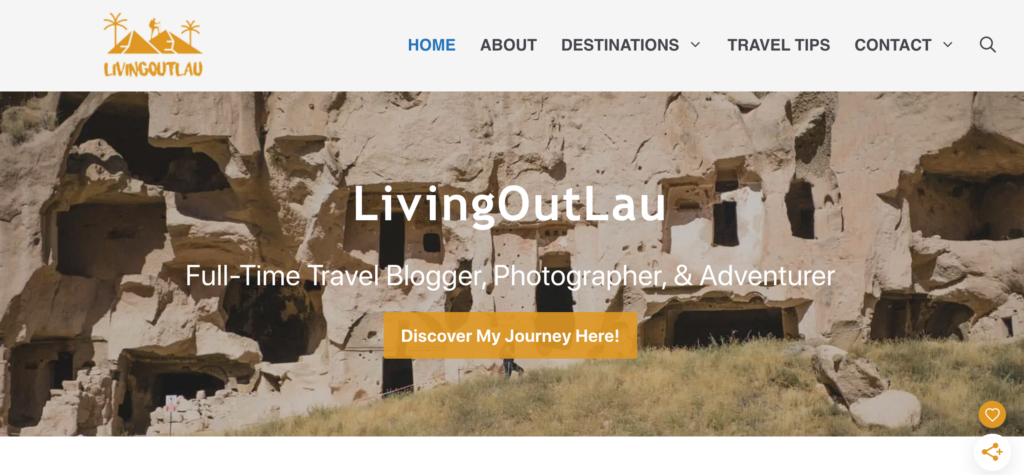

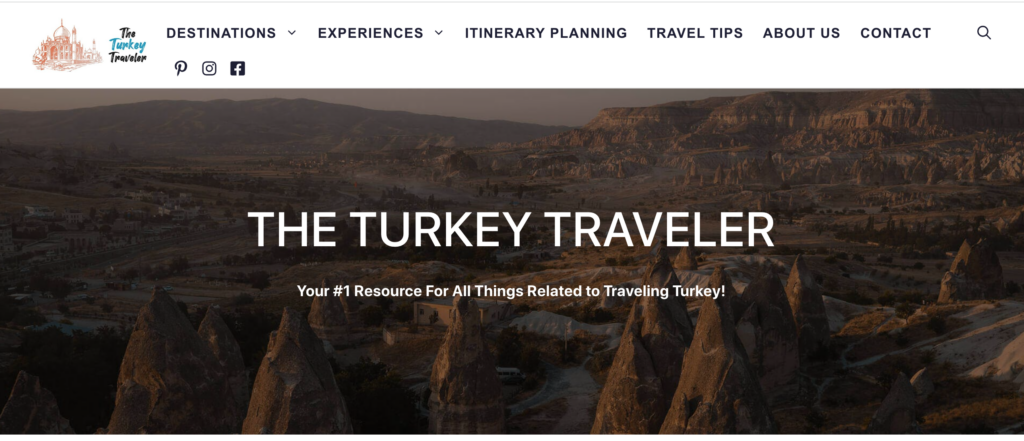

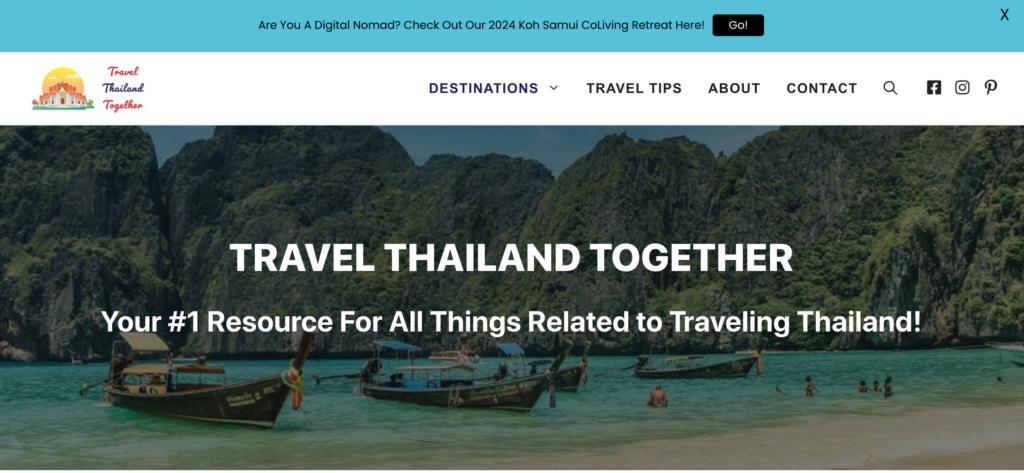

All three of the travel blogs offer a mix of practical advice, in-depth guides, and personal anecdotes.
As for growth, well, it’s been a mixed bag.
Living Out Lau, which I started in 2018, took its time, reaching 50k sessions after about 3 years. The Turkey Traveler (2022) sprinted ahead, hitting 100k sessions in just 9 months. And Travel Thailand Together (2023)? It got to about 30k sessions in a year.


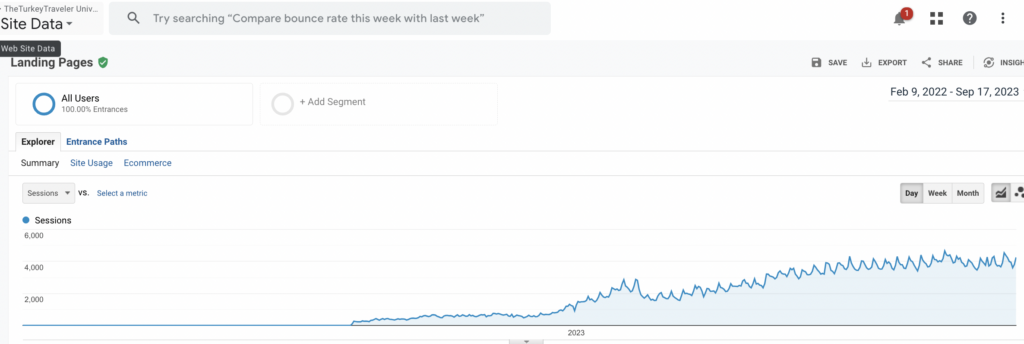

The growth of the blogs heavily depends on how much content I’m able to put out.
As I dive deeper into blogging, it becomes crystal clear that diversification is crucial, and I’m not just talking about where your traffic comes from.
It’s about always having your radar on for fresh opportunities and staying nimble to keep up with the ever-evolving tech landscape.
As for traffic, Living Out Lau gets just under 100k sessions per month. The Turkey site used to get over 100k per month, but now dropped down to about 30k a month because of the HCU. The Thailand site gets about 30k per month and, like my original blog, was not affected by the update.
How Much He’s Earning
It varies quite a bit, but the sites earn about $5k a month through a mix of affiliates, sponsorships, and advertising.
It took about 4 years for me to achieve this level, but since then, I’ve had 5-figure months as well.


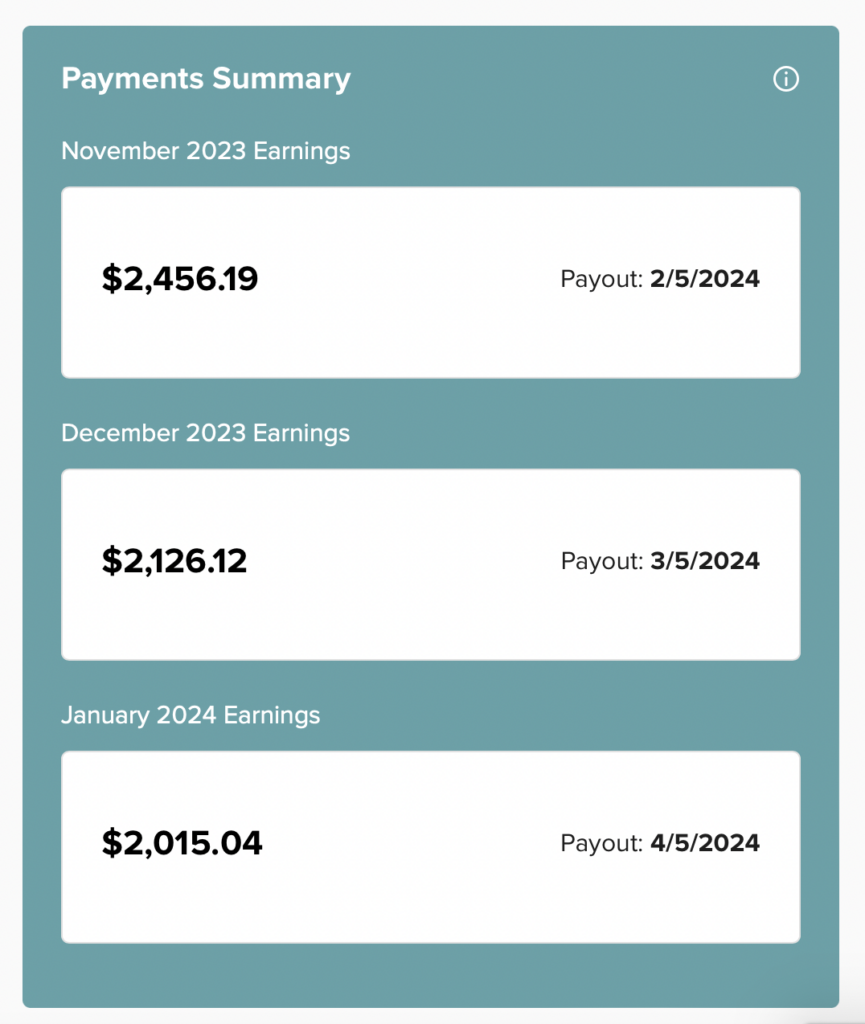





As for how much I work, it varies since I travel so much, but anywhere from 10 hours to 40 hours a week. I always aim to do at least 20 hours a week, so I’ll make up for it on days when I’m not doing anything.
The thing with blogging is that there is always something to do, so whenever I have some free time, I just pop open my laptop and get a little bit of work done.
Sean’s Main Marketing Strategy
When it comes to my number one marketing strategy, I’d have to say it’s SEO. It’s simply the best way to drive organic traffic to my sites. But there’s more to just SEO for getting organic traffic.
Think of your website as a tree.
Before it can grow tall and strong, you need to plant the right seeds and foundation. That means starting with a domain name that’s both catchy and brandable. Something that sticks in people’s minds and makes them want to come back.
But perhaps my biggest tip/secret for organic traffic is to build your site on an expired domain. This can give you a head start in terms of SEO, as these domains often come with pre-existing backlinks and authority even if it doesn’t, having an aged domain name can help Google notice your site much quicker.
That is how I was able to grow The Turkey Traveler so quickly. It’s the only expired domain I used. It was a blog many years ago but had been abandoned for a long time when I purchased it.
It only had a DA of 4 and about 3 referring domains, but the first post I published ranked in the top 3 within a week of being published.
I didn’t believe it, so I tried a brand new domain for my Thailand site, and we are not seeing nearly the same growth we did with the Turkey site and the only notable difference between the two is the expired domain.
When it comes to finding a good, expired domain, you will probably have more luck with platforms that sell aged sites (like OdysGlobal). If you don’t mind doing a bit of homework, then auctions (like GoDaddy Auctions) are perfectly fine.
This is where you’ll be able to get a good deal, but you’ll have to put in a bit of time.
His Thoughts on SEO
SEO is still one of the most important aspects of my business, especially since it drives a very targeted audience that can convert easily. It’s responsible for nearly 90% of the traffic on all my sites.
There are many parts to my SEO strategy, and it starts with looking at my existing content. I look for keywords that can be interlinked with my existing content and similar to something I’ve written (and is ranking).
If I don’t find something that is similar to something I’ve written, then something I can interlink to is enough. It is similar to creating topical authority.
Then, of course, you look for low-difficulty keywords using tools like Ahrefs and KeySearch. I’m not too worried about the volume of the keyword as long as I believe I can rank in the top 3 for it. Even a keyword with “10” volume on Ahrefs can drive hundreds of traffic per month.
Then comes the writing, which I often outsource to my writers. My writers don’t use AI (as far as I know) and this can definitely be beneficial.
After the content is written, I’ll internally link it with my relevant articles, sometimes manually or using Link Whisper.
Keyword Research
My keyword research process is quite organic.
Because I often travel to the places that I write about, my keyword research process involves putting myself in the shoes of the traveler. This helps me to find smaller but essential queries that are not only easy to rank for, but something I can offer valuable advice on.
The same queries often come up, but just for different destinations, so I end up with a ton of keywords that I have a good chance of ranking high.
I try not to keyword-mine other travel bloggers and travel sites, unless I see that the content is seriously lacking some good information. There is enough of the same information being regurgitated everywhere on the internet, and we don’t need more of that.
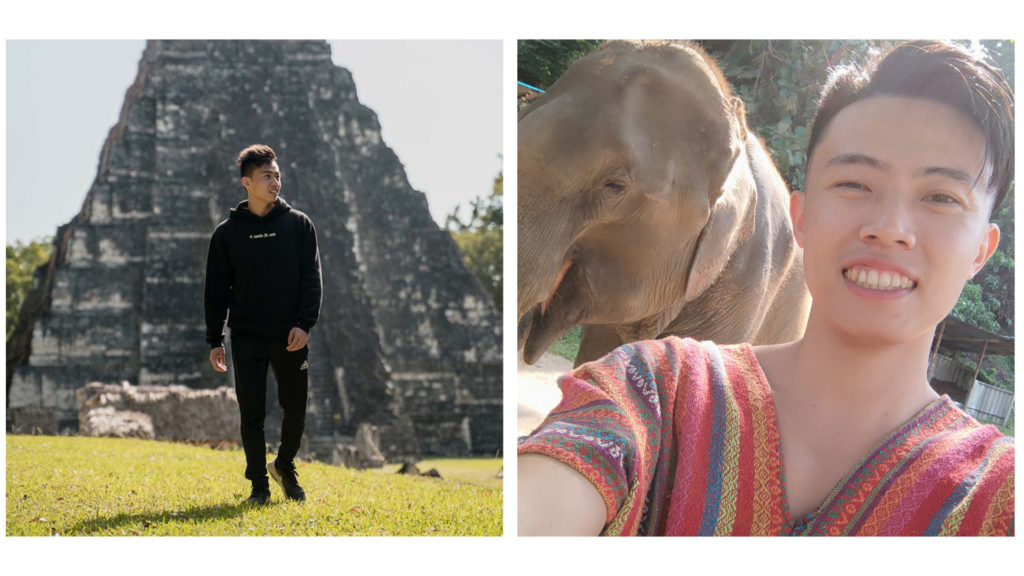

Link Building
Link building is one of the most essential parts of running an online business looking to gain organic traffic. It’s particularly important during the early stages, but it falls off once you reach a good amount of authority.
In my link building efforts, I prioritize seed sites, which are considered by Google as highly authoritative (think Forbes, HuffPost, etc.). I use a mix of personal outreach and sites like HARO for this.
From time to time, I also guest post on other travel blogs, as it’s critical to maintain relevance with your backlinks.
I once experimented with link building agencies that offered 3-way link swaps, but the quality of the sites they provided was disappointingly low. In fact, their services may have done more harm than good.
Sean’s Content Creation Process
Currently, I have two writers who write for me using the outlines I give them. Then I edit them before passing them on to my VA, who publishes them online.
I try to get at least 1 article published per week on each site, but sometimes it’s not possible with traveling and managing three sites.
- On Living Out Lau, there are approximately 270 articles
- On The Turkey Traveler, there are approximately 160 articles
- On Travel Thailand Together, there are approximately 80 articles
His Email List
On Living Out Lau, we have a very small email list because I haven’t put in the effort to grow it, which I deeply regret.
On The Turkey Traveler, I do have an email list, and it’s growing quite nicely. I use Grow to help me get more subscribers for that.
And on Travel Thailand Together, we currently don’t have an email list, but I’ll grow that once we reach around 50k monthly sessions. At that point, the time and effort of managing an email list will be more worth it.
At the moment, we are just using Grow to grow it since it’s quite passive. But further down the line, we might have to adapt new strategies if we want to grow it more quickly.
His Favorite Resources
I would recommend checking out Niche Pursuits, Authority Hacker, and Matt Diggity.
These guys share real case studies and run multiple sites, so you get a bigger picture of which SEO strategies work and which do not.
Make sure you network and speak to other bloggers. There are tons of blogging Facebook groups out there where you can connect with other people who are in the same boat as you.
Ask questions, share your experiences, and soak up their advice. You’ll be surprised at how much you can learn from these online communities.
And lastly, remember that there’s no shortage of self-proclaimed gurus out there. Every Tom, Dick, and Harry has an opinion, but that doesn’t mean it’s right for you.
So when you hear some advice, don’t just swallow it whole. Do your homework and do some online research before you decide to apply any strategy.
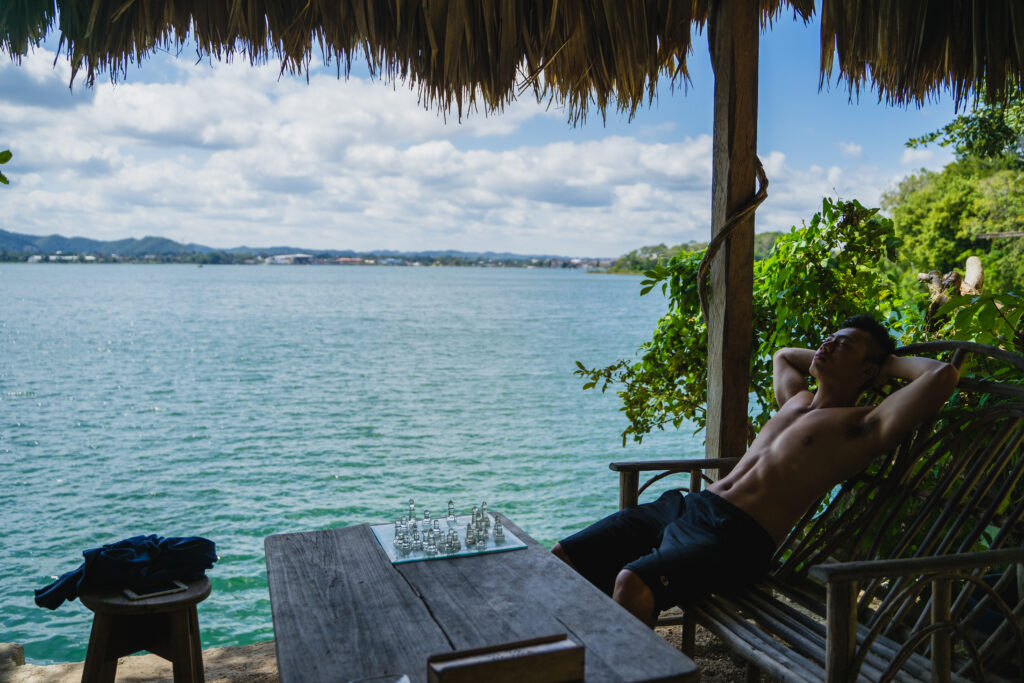

His Go-To Tools
KeySearch, Facebook groups, and Jasper are three of my most useful tools as an entrepreneur.
KeySearch: This tool is my primary tool for SEO. It helps me find keywords that are relevant to my business and have a good balance of high search volume and low competition.
Plus, it provides insights on backlinks, competitor analysis, and more.
Facebook groups: Besides sharing cute cat videos, I use Facebook groups for networking and learning. These are communities filled with other bloggers and entrepreneurs who share their experiences, advice, and sometimes even their failures (which are just as valuable to learn from!).
It’s also a good place to learn more about your customers directly if you are planning to sell a product.
Jasper: Jasper has been my content writing assistant for a while now, and it’s particularly helpful when I am having a creative block.
I use it for articles, social media content, and sometimes even writing emails. It has definitely been a game-changer!
Sean’s Main Challenge
Keeping up with the rapidly changing digital landscape has been the biggest challenge for me. The advent of AI, constant updates to the Google Search algorithm, and shifting user attention all require us bloggers to adapt quickly.
The second major challenge I’ve encountered is building a reliable team.
Hiring a virtual assistant seemed like a logical step to offload some tasks and free up my time. However, finding the right VA who can work independently, has attention to detail, and is passionate about the work has been more difficult than I anticipated.
Before you find the right person, make sure you have very specific instructions/SOPs that they can follow. It is very unlikely you’ll hire someone who knows your exact procedures.
From my experience, sometimes it can even backfire when you hire someone with similar experience because they think they know what to do, so they’ll skim through the SOPs and instructions.
Having a trial period or trial task is essential. I like having a few potential candidates do a trial task to see how they perform.
The final product is not the most important thing. You want to see how the candidates behave when they encounter difficulties, how much attention to detail they have, and how they communicate with you.
His Greatest Accomplishment
My most significant accomplishment as an entrepreneur has been redefining my relationship with failure. It’s no longer a dead-end or a sign of defeat for me. Instead, I see it as a stepping stone towards success.
This shift in perspective has been essential to my success as a blogger. It’s taken away the fear and stigma associated with failing and replaced it with resilience and a drive to learn. Now I see every as an opportunity for growth and improvement. It’s a chance to analyze what went wrong, understand why it happened, and figure out how to avoid similar mistakes in the future.
I didn’t always have this realization, but I guess I kinda developed it after trying so many different things and not achieving the outcome I wanted.
It was never, “Oh this didn’t work, time to give up.” It was always, “Oh this didn’t work, how can I try a different way or approach it from a different angle?”
I guess what made my fear of failure go away was knowing that I always had a backup, whether that was time (to try something new) or just going back to my old job (to have money before trying something new again).
My end goal was also something I truly cared about. It was never to be rich, but just to have the financial independence to live happily.
And when you have a goal that you truly care about, your failures are no longer failures, but just part of the process.
What He Wishes He Knew When He Started
If I could go back to when I first started, I wish I knew that blogging is far from a straightforward journey. It’s more like a rollercoaster ride with lots of highs and lows.
I used to believe that once I found a successful strategy, it would be smooth sailing from there. However, the reality is that there are numerous twists and turns along the way.
You might face setbacks that can feel disheartening, especially after investing significant time and resources.
For instance, a Google algorithm update could suddenly make your SEO strategy ineffective, or a social media platform might change its policies, affecting your content visibility. These external factors are beyond our control and can require us to pivot and adapt.
This happened early in my blogging career when I was trying to use social media (mostly Instagram) to drive traffic to my blog. For a year or two, Instagram was a good chunk of my site’s traffic, but the introduction of reels and TikToks eventually dropped my engagement.
It took me some time to realize that I had to switch my social media strategy if I wanted to get traffic to my site. I ended up abandoning that strategy altogether and started focusing on SEO.
Then, of course, we have the Google Search Algorithm updates that happen every few weeks. I’ve adjusted my content strategy and style of writing, and even deleted content for that!
His Biggest Mistake
Reflecting on my entrepreneurial journey, the biggest mistake I made was not having a well-defined path to my end goal. When I first started, I knew what my end goal was—to make blogging my full-time income and job—but I had no idea how to get there.
For two years, I wrote articles not optimized for SEO, social media posts that were not designed to gain more engagement and followers, and basically just had no strategy on how to get traffic to my site.
I tried to navigate everything on my own, thinking I could figure it all out through trial and error. While this approach did lead to some valuable learning experiences, it also resulted in unnecessary mistakes and wasted time.
In hindsight, seeking advice from experienced mentors could have helped me reach my goals faster, whether that is in the form of an SEO course or speaking to fellow successful bloggers.
So, if I could go back, I would certainly invest more time in setting a well-defined path to my goal, finding the right mentors, and learning from them.
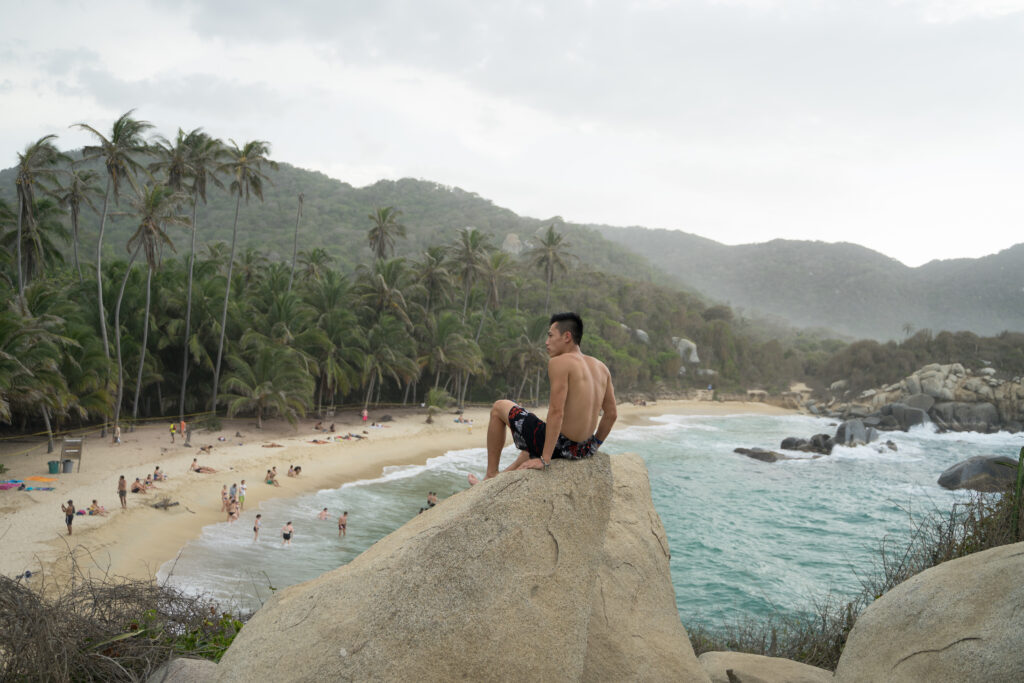

His Advice for Other Entrepreneurs
First and foremost, having a well-defined goal is crucial. Know where you want to go and what you want your business to achieve.
Don’t think about this just in terms of how much money you are making, but also about the impact you want to make in your industry or community.
Once you have that goal, make actionable plans. A dream without a plan is just a wish.
So, map out the steps you need to take to reach your goal and stick to it. But remember, while it’s important to be persistent, it’s also necessary to be flexible. Adapt your plan as needed because the entrepreneurial journey is rarely a straight line.
Once you have that plan, you’ll need to seek out all the resources you can get your hands on. Take in all the knowledge, advice, and mentorship. Never stop learning, because the business world is always evolving. Attend workshops, read books, network with other entrepreneurs, and don’t hesitate to ask for help when you need it.
Most importantly, this is something I discovered after a few years of working remotely, and that is self-care.
Entrepreneurs are known for their long hours and relentless drive, but it’s equally important to take care of yourself, both mentally and physically. Burnout is real, and it can take a severe toll on your ability to think clearly and make sound decisions.
So take breaks, exercise, eat healthily, and do things that help you relax and recharge.
Lastly, embrace failure. As an entrepreneur, you’re probably going to fail at least a few times, and that’s okay. In fact, it’s more than okay. It’s an opportunity to learn, grow, and come back stronger.
Each failure brings you one step closer to success. The key is not to let it discourage you, but to get up, dust yourself off, learn from it, and try again.
Entrepreneurship is not just about building a successful business, it’s also about building a resilient and adaptable mindset.